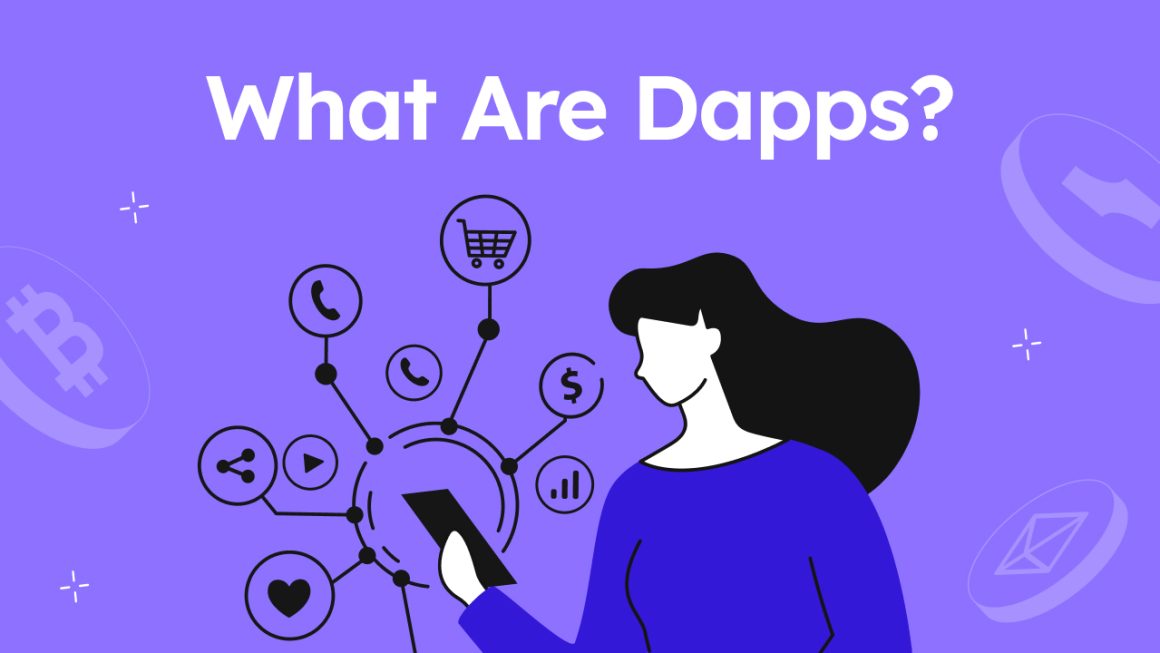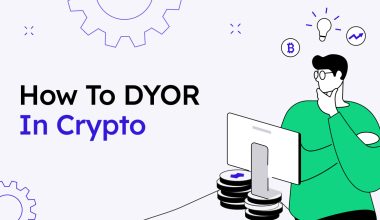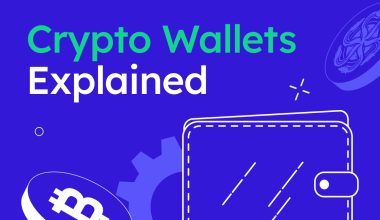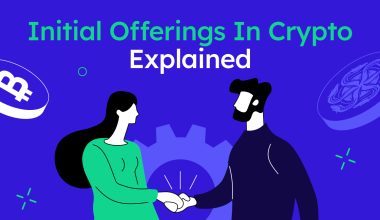One of the most transformative innovations emerging in recent years is the advent of decentralized applications, commonly known as DApps. These innovative applications are at the forefront of the decentralized revolution, promising a more secure, transparent, and user-centric digital landscape.
If you’re new to the world of crypto, blockchain, and decentralized finance (DeFi), then this article is a good starting point to get familiar with Dapps and what they do.
What are DApps?
Decentralized applications, or DApps, are software applications that run on a decentralized network of computers rather than a centralized server or infrastructure. Unlike traditional applications that rely on a single point of control, DApps operate on blockchain technology, which enables peer-to-peer interactions and eliminates the need for intermediaries. This decentralized nature empowers users with greater control over their data, enhances security, and fosters a more transparent and democratic digital ecosystem.
Why are decentralized applications created?
DApps are created to address the limitations of centralized applications, which often suffer from issues such as data breaches, censorship, lack of transparency, and trust issues due to single points of failure.
DApps leverage blockchain technology, which is a decentralized and distributed ledger that records transactions across multiple computers, or nodes. Smart contracts, which are self-executing contracts with predefined rules and conditions, play a crucial role in DApps. These contracts automate processes, enforce transparency, and eliminate the need for intermediaries, ensuring a trustless and efficient environment.
What is the use of decentralized applications?
DApps serve a wide range of purposes across various industries, from finance and supply chain management to gaming and social media. Here are a few examples to illustrate their diverse applications:
- Decentralized Finance (DeFi): DApps have revolutionized the financial landscape by enabling peer-to-peer lending, decentralized exchanges, and yield farming, among others. These DeFi DApps provide users with greater control over their assets, allowing them to earn passive income, access loans without intermediaries, and participate in decentralized governance.
- Supply Chain Management: DApps have the potential to transform supply chain processes by providing transparent and immutable records of transactions. This enhances traceability, reduces fraud, and ensures ethical practices throughout the supply chain, benefiting both businesses and consumers.
- Gaming and Entertainment: DApps are revolutionizing the gaming industry by enabling true ownership of in-game assets and facilitating peer-to-peer transactions. These DApps empower players by allowing them to earn, trade, and sell virtual items, creating new opportunities for gamers and content creators.
Okay, but why should you care about Dapps anyway?
As an individual, there are several reasons why you should care about decentralized applications (Dapps), even if you are not very interested in technology or can’t be bothered with it at all. The reason is that Dapps can still be useful to you.
Greater Control and Ownership
Dapps empower individuals by giving them greater control over their digital assets, data, and online identity. With Dapps, you can interact directly with the application, eliminating the need for intermediaries or centralized authorities. This means you have full ownership and control over your personal information, reducing the risk of data breaches or unauthorized use of your data.
Enhanced Privacy and Security
Dapps leverage the security features of blockchain technology to provide enhanced privacy and security. By operating on decentralized networks, Dapps reduce the risk of single points of failure or data breaches. Additionally, blockchain’s cryptographic protocols ensure the integrity and immutability of data, making it highly secure and resistant to tampering.
Financial Freedom and Inclusion
Many Dapps focus on financial services, offering decentralized alternatives to traditional banking systems. These Dapps provide opportunities for individuals to access financial services, such as lending, borrowing, and remittances, without relying on traditional intermediaries. This can be particularly valuable for individuals in underserved or unbanked regions, promoting financial inclusion and empowerment.
Innovation and New Opportunities
Dapps foster innovation by enabling developers to create decentralized applications with novel functionalities and business models. This opens up new opportunities for entrepreneurs, creators, and developers to build and monetize their ideas without relying on centralized platforms or gatekeepers. Dapps also allow for novel use cases, such as decentralized marketplaces, gaming, content creation, and more.
Community Participation and Governance
Many Dapps operate as decentralized autonomous organizations (DAOs) where users have a say in the decision-making process. By participating in these Dapps, you become part of a community-driven ecosystem, where users collectively contribute to the development, governance, and evolution of the platform. This allows for a more inclusive and democratic approach to application development and management.
In a sentence, Dapps provide practical advantages that can enhance your digital experiences, protect your data, and provide new opportunities for financial and personal empowerment.
As such, they are worth exploring.
The Future
The future of DApps appears promising, with the potential to reshape industries and redefine user experiences. As blockchain technology continues to evolve, scalability and user-friendly interfaces are being prioritized to drive mass adoption.
The future potential of DApps of course extends beyond the current use cases we see today. They have the potential to revolutionize voting systems, intellectual property rights management, digital identity verification, and much more. By leveraging the power of decentralized networks, DApps can introduce transparency, security, and efficiency to industries that have long relied on centralized systems – and have suffered for it.
We can anticipate a scenario where Dapps seamlessly integrate with our daily lives, transforming everything from how we manage our finances to how we interact with social media platforms.
Conclusion
Decentralized applications (DApps) represent a paradigm shift in the digital landscape, empowering users with greater control, security, and transparency. By leveraging blockchain technology, DApps are revolutionizing industries, ranging from finance and supply chain management to gaming and entertainment. As the future unfolds, DApps will likely play an increasingly pivotal role in reshaping our digital experiences.
There is also an effort to simplify users’ experience of DApps, as this will be crucial for mass adoption. Dapps are still highly technological and inaccessible to individuals who have no prior knowledge of blockchain technology. The aim is to provide a seamless and intuitive experience that rivals traditional centralized applications, ensuring that users can harness the benefits of DApps without facing technical barriers.
We hope you’ve found this article interesting. Keep reading below.






